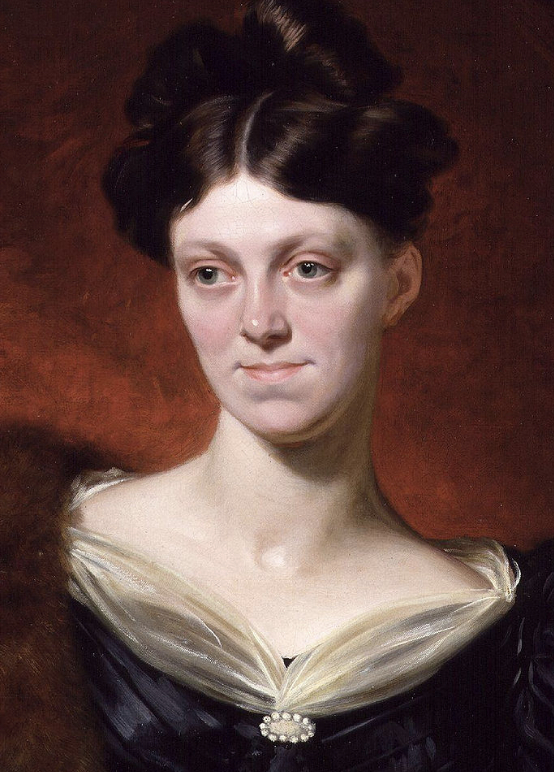On this date in 1802, Harriet Martineau was born in Norwich, England. The sixth of eight children of a textile manufacturer, she recoiled from her family’s Christian brand of Unitarianism, such as chapel admonitions for children and servants to obey their masters. She went through a devout teenage phase, but as an adult she wrote of Unitarianism: “I disclaim their theology in toto.” Martineau began losing her senses of taste and smell at a young age, becoming increasingly deaf. She turned to writing to help out her family and by 1830 had gained some renown. She blazed a path for women by supporting herself with her nonfiction, writing 50 books and more than 1,600 articles, signed in her own name.
In her memoirs, she boasted of being “probably the happiest single woman in England.” (She never married.) Her two-volume Society in America, as acclaimed as de Tocqueville’s look at life in America, was a definitive work on the status of American women, whom she found unhealthily obsessed with religion. Because of her scrupulous methods of observation, she is credited by some with being the “first sociologist.” Still anthologized is her essay “The Hour and the Man,” a tribute to Haitian slave liberator Toussaint L’Ouverture. After visiting the Mideast with friends, Martineau wrote an examination of the genealogy of Egyptian, Hebrew, Christian and Islamic faiths, Eastern Life: Past and Present (1848). Critics pounced on the “mocking spirit of infidelity.”
Her 1851 book, On the Laws of Man’s Nature and Development, featuring published letters between herself and H.G. Atkinson, made clear her freethought views (see quote below). Wanting to offer children an alternative to “pernicious superstition,” she wrote Household Education (1848) as a secular guide to parents. She translated and condensed the six volumes of French atheist and philosopher Auguste Comte into two volumes, with his approval, in 1853. An erroneous prognosis by a doctor telling her she had fatal heart disease in 1855 propelled her to write her autobiography. She recorded that believers, hearing of her (misdiagnosed) illness, swamped her with self-righteous religious propaganda, such as the New Testament (“as if I had never seen one before”).
When Martineau died in 1876 at age 74, Florence Nightingale wrote that she “was born to be a destroyer of slavery, in whatever form, in whatever place, all over the world, wherever she saw or thought she saw it.”
PHOTO: Martineau, c. 1834, cropped from an oil painting by Richard Evans.


